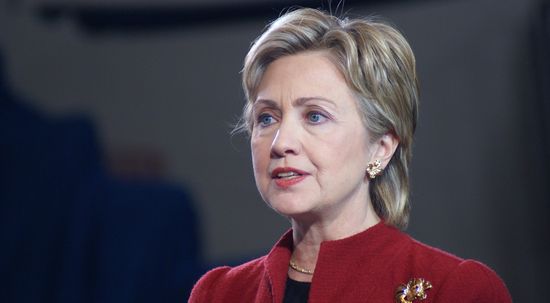The Impact of a Clinton Presidency on Philanthropy Could Be Huge
/
Even before her primary victories yesterday, Hillary Clinton had locked up the Democratic nomination for president. Historic? You bet. For the first time ever, a woman will be a major party’s nominee for President of the United States. But the nomination of Clinton may also be a historic event for philanthropy.
As we've noted before, if Clinton wins the White House, she'll enter office with more understanding of philanthropy and nonprofits than any president in history. But of equal or greater significance may be the new attention her presidency could bring to gender equity within philanthropy, making it a priority like never before.
Related: What Might a Clinton Presidency Mean for Philanthropy and Nonprofits?
Clinton has been attuned to nonprofit work on gender and family issues for some 45 years. Marian Wright Edelman, the founder of the Children's Defense Fund, was an early mentor. Clinton served as board chair of that organization for six years, from 1986 to 1992, giving her a first-hand understanding of nonprofit management and fundraising. From 1987 to 1991, she was the first chair of the American Bar Association's Commission on Women in the Profession, which was created to combat gender bias in the legal profession.
As First Lady, Clinton attended the historic U.N. Women's Conference in 1995 in Beijing, where she articulated the importance of gender equity in terms that are familiar now, but were cutting-edge then. The most famous phrase from that speech was “women’s rights are human rights," but Clinton also said:
What we are learning around the world is that if women are healthy and educated, their families will flourish. If women are free from violence, their families will flourish. If women have a chance to work and earn as full and equal partners in society, their families will flourish. And when families flourish, communities and nations do as well.
Later, as Secretary of State, Clinton appointed the first-ever ambassador at large for global women’s issues at the State Department; helped create the U.S. National Action Plan on Women, Peace, and Security; and re-oriented U.S. global health policy to embrace a focus on gender equity, giving new attention to robust maternal and infant health services.
More recently, the Clinton Foundation has cultivated the terrain of women’s empowerment. It kicked things up a notch in 2013 when it announced its No Ceilings Initiative, and produced one of the most comprehensive data reviews of the status of women in the world. Among other things, the Clinton Foundation grasps the significance of women’s empowerment in addressing climate change.
Related:
- What's the Clinton Foundation Doing at the Nexus of Climate, Islands, and Women?
- What's the Clinton Foundation Doing for Women's Empowerment?
Its networking prowess, while criticized for going beyond the bounds of ethics at times, has also facilitated communication and collaboration among a range of power players on women's equity. Among them are not only top foundations like Gates and Rockefeller, but corporations like Goldman Sachs, Google, and Wal-Mart, all of which are corporate supporters of women’s empowerment. The foundation also works on LGBT rights, bringing together corporations like MasterCard and Barclay’s Bank to collaborate on extending equity with other diversity and inclusion movements.
Related:Also on the Clinton Foundation's Agenda: Getting Business Behind LGBT Equality
The Obama administration has broken new ground in creating major collaborations between government, philanthropy and business, most notably with My Brother's Keeper. Clinton is well positioned to expand on this record, given her own background in orchestrating cross-sector initiatives.
There is no shortage of possibilities for new public-private efforts related to gender equity. Gender lens impact investing, financial inclusion for women, STEM education for girls—all could attract White House attention under a Clinton presidency.
So what’s not to like? There is little question about whether the public wants more transparency about philanthropy, and the Clinton Foundation would be the obvious place to start. As we pointed out in an earlier post, "The biggest problem is that these partnerships offer an avenue for private donors to curry favor with public officials, with money flowing in non-transparent ways with motives that are hard to pinpoint."
The last thing we want to see is that kind of opacity in the White House.
But our hunch has been that, as president, Clinton could favor overdue reforms to philanthropy and the nonprofit sector, starting with more transparency in philanthropic giving. After all, she now knows all too well the pitfalls of shrouding philanthropy in secrecy.
As we've said before, if Hillary Clinton and the Clinton Foundation learn anything from weathering all the questions raised by the press recently, it should be "that the philanthropic sector needs to embrace more sunshine at a moment when all elites are distrusted."








